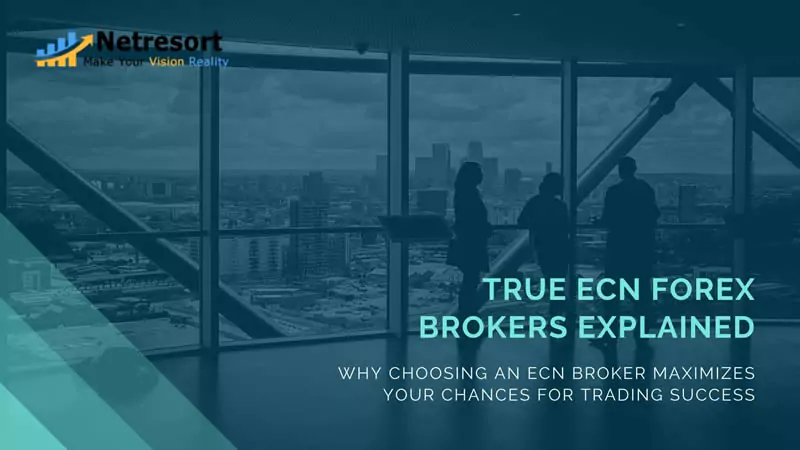Understanding Offshore Forex Brokers
Offshore forex brokers operate from countries with regulatory frameworks different from your own. While there's a common belief that these jurisdictions have lax rules, many of them actually have robust regulations in place. Surprisingly, some of the most significant scams occur in highly regulated countries like the US and Cyprus, highlighting the importance of understanding the regulatory landscape wherever you trade.
Benefits of Offshore Forex Brokers
These brokers are favored by traders for their ability to offer currency trading with fewer restrictions. They are particularly attractive to individuals seeking benefits not available in their home countries, such as higher leverage. For instance, while regulators like CySEC, FCA, and ASIC impose leverage caps at 1:30 in Europe, the UK, and Australia respectively, offshore jurisdictions like Seychelles may allow leverage up to 1:500 or even higher. This allure of higher leverage is appealing to traders looking to maximize profit potential and capitalize on market opportunities.
However, it's essential to approach offshore forex trading with caution. While the prospect of higher leverage may seem enticing, it comes with its own set of risks. One of the primary concerns is the potential reduction in trader protections. Regulatory oversight may not be as stringent in offshore jurisdictions, leaving traders more vulnerable to fraudulent activities or unscrupulous practices by brokers.
Additionally, navigating the legal and regulatory landscape of offshore trading can be complex. It's crucial to thoroughly research and understand the regulatory environment of any offshore jurisdiction before engaging with a forex broker based there. This includes evaluating the broker's reputation, track record, and compliance with international standards.
Ultimately, while offshore forex brokers may offer certain advantages, such as increased leverage, traders must weigh these benefits against the associated risks. It's essential to exercise diligence and prudence when choosing an offshore broker and to prioritize the safety and security of your investments.
Taking a Deeper Dive into Offshore Forex Brokerage

Upon closer examination, the offshore forex brokerage scene unveils a multitude of top-tier offshore forex brokers, providing traders with secure trading environments, feature-rich platforms, and enticing trading conditions. It's worth noting that many forex brokers based in tier-1 jurisdictions also extend their services offshore through subsidiaries, ensuring traders worldwide can access competitive trading conditions.
Every day, investors face limitations when seeking investment opportunities beyond their home country. Local financial institutions typically offer access to popular markets like the US, Canada, and select European markets. However, offshore brokers play a crucial role in expanding the investment horizon by granting access to a broader range of international markets. This not only enhances the diversity of investment options but also empowers investors to explore new opportunities beyond their domestic markets.
Understanding Offshore Regulation
Offshore regulation pertains to the oversight of financial activities by regulatory bodies located in jurisdictions different from where the trading activities occur. These offshore jurisdictions are often known for their relaxed regulations, favorable tax rates, and simplified registration processes, particularly for financial entities such as forex and CFD brokers.
For traders, offshore regulation presents a double-edged sword. On one hand, it offers benefits like higher leverage and more flexible trading conditions, which are often unavailable in stricter regulatory environments. However, on the flip side, there's the risk of lower investor protection. While some offshore regulatory bodies are tightening their oversight, they generally don't provide the same level of safeguards as regulators in major financial centers like the US, UK, or EU.
When considering an offshore broker, it's crucial to prioritize safety measures. Look for brokers that offer multiple layers of protection, including segregated accounts to safeguard your funds and negative balance protection to mitigate your risk. Additional features such as compensation schemes or private indemnity insurance can further enhance your security, even if the broker is regulated offshore.
Here are some popular offshore regulators along with the protections and maximum leverage they provide:
- Seychelles: The Financial Services Authority (FSA) of Seychelles (Segregated funds, negative balance protection, leverage up to 1:500)
- Mauritius: The Financial Services Commission (FSC) of Mauritius (Segregated funds, negative balance protection, leverage up to 1:500)
- Vanuatu: The Financial Services Commission (FSC) of Vanuatu (Segregated funds, leverage up to 1:500)
- British Virgin Islands (BVI): The Financial Services Commission (FSC) of the British Virgin Islands (Segregated funds, negative balance protection, leverage up to 1:1000)
- Belize: The Financial Services Commission (FSC) of Belize (Segregated funds, negative balance protection, leverage up to 1:1000)
By understanding the regulatory framework and available protections in offshore jurisdictions, traders can make more informed decisions when choosing an offshore broker for their trading activities.
Exploring the Risks of Trading Through Offshore Brokers
Engaging with offshore brokers introduces a unique set of potential risks that traders must carefully consider:
- Limited Investor Protection: Offshore jurisdictions often lack the robust regulations seen in major financial centers, potentially leaving investors with less protection against fraud or malpractice.
- Operational Transparency: Offshore brokers may not adhere to the same standards of transparency as those regulated by esteemed bodies like the SEC, FCA, or ESMA, making it challenging for traders to fully understand the broker's operations.
- Fund Security: Unlike brokers regulated by strict authorities, offshore brokers may not be required to keep client funds in segregated accounts, increasing the risk of capital loss in case of broker insolvency.
- Leverage Risks: While higher leverage can amplify potential profits, it also exposes traders to significant losses, especially in volatile markets. It's essential to assess whether high leverage aligns with your risk tolerance and trading strategy.
- Regulatory Oversight: Some offshore regulators have weaker oversight and impose less stringent reporting requirements on brokers, potentially creating an environment conducive to unethical practices and market manipulation.
- Lack of Negative Balance Protection: Without this safeguard, traders risk incurring losses exceeding their initial deposit, potentially leading to debt accumulation.
- Absence of Compensation Schemes: Unlike in more regulated jurisdictions, many offshore locations lack compensation schemes to protect investors in the event of broker insolvency or misconduct.
- Market Manipulation and Slippage: The likelihood of encountering unfair trading practices, such as price manipulation and slippage, is higher with less-regulated offshore brokers, posing additional risks to traders' profitability.
Given these inherent risks, it's imperative for traders considering offshore brokers to conduct thorough due diligence. This includes scrutinizing the broker's regulatory credentials, fund protection measures, and trading terms to ensure alignment with their risk appetite and investment objectives. Making informed decisions can help mitigate potential risks and safeguard your trading capital.
The Advantages of Trading Through Offshore Forex Brokers
Despite the aforementioned risks, prudent selection of offshore forex brokerage can yield a multitude of benefits for traders:
- Flexibility: Offshore brokers offer access to diverse stock markets across various countries, expanding investment opportunities beyond domestic markets. While operating in different time zones may necessitate adjusting to non-traditional trading hours, the range of investment options available is extensive, including stocks, fractional ownership, forex, futures, funds, options, and precious metals. Additionally, offshore accounts often allow for account opening without stringent credit scores or financial position requirements, offering accessibility to a broader spectrum of traders.
- Tax Advantages: Certain countries, such as Switzerland, Singapore, and Panama, offer tax benefits by not taxing capital gains. Moreover, profits from successful trades may not incur immediate taxation, although tax obligations may still apply in the trader's country of residency and should be duly declared. Opting to register as a business entity instead of an individual can also yield tax advantages, particularly in jurisdictions with favorable business tax policies.
- Privacy: Offshore accounts afford a level of financial privacy, as transactions and activities conducted through these accounts may not be subject to disclosure to the trader's country of residency or third parties. Unlike domestic accounts, offshore accounts can maintain confidentiality and discretion in financial matters.
- Wealth Protection: For investors residing in politically or economically volatile countries, offshore accounts offer a layer of wealth protection. Domestic financial institutions may not guarantee the safety of funds during periods of domestic or international conflict. Offshore accounts provide an alternative avenue for safeguarding assets and mitigating risks associated with unstable domestic environments.
In summary, trading through offshore forex brokers presents opportunities for enhanced flexibility, tax efficiency, privacy, and wealth protection. However, it's essential for traders to conduct thorough research and due diligence to ensure compliance with relevant regulations and mitigate associated risks.
Best High Leverage Forex Brokers

The Best Forex Brokers in 2025
Rating breakdown
Things we liked:
AvaTrade has low trading feesThe account opening is user-friendly and fast
It offers a lot of deposit and withdrawals options free of charge
Things we didn't like:
The product portfolio is limited as it offers only CFDs, forex, and cryptosThe research tools are limited
Rating breakdown
Things we liked:
XM has low trading feesThe account opening is user-friendly and fast
Lots of educational tools
Things we didn't like:
XM has a limited product portfolioThe research tools are limited
It charges inactivity fees
Desirable Characteristics of Offshore Brokers
When searching for the optimal offshore broker to meet your trading requirements, it's essential to have a clear understanding of the features you should prioritize. These criteria will enable you to identify brokers with the most comprehensive offerings.
- Mobile Application: A significant portion of investors conduct transactions using their mobile devices. It is crucial to ensure that the broker's platform is optimized for both mobile and desktop use to facilitate seamless trading experiences across different devices.
- Withdrawal Policies: Some offshore brokers impose restrictions on the frequency and amount of periodic withdrawals. It's important to choose a broker that offers flexible withdrawal options, allowing you to access your funds promptly when needed.
- Banking Services: Many traders are accustomed to having a range of banking services, including bank accounts, credit cards, and loans, with their financial institutions. Some offshore brokers extend similar banking products to attract more clients. Considering these offerings could be advantageous if they align with your financial needs.
- Customer Support: Efficient customer support is vital for resolving any issues that may arise during your trading journey. Access to responsive customer support channels ensures that you can seek assistance promptly without wasting valuable time.
- Trading Tools: The best brokers provide a comprehensive suite of trading tools, including real-time quotes, watchlists, charts, and options, to facilitate informed decision-making. Offshore brokers should also offer these essential tools to attract and retain investors seeking robust trading capabilities.
By prioritizing these desirable features, you can effectively evaluate offshore brokers and select the one that best meets your trading preferences and requirements.
Helping you find the right offshore broker for you
Our team of experts has meticulously assessed offshore brokers worldwide, considering various factors to formulate our recommendations for you. Throughout this evaluation process, we paid particular attention to:
- Robust Protection Measures: We sought offshore brokers that prioritize security, including safeguards like segregated funds and negative balance protection. Additionally, brokers offering compensation schemes or private indemnity insurance were regarded favorably.
- High Leverage Options: We exclusively considered brokers providing maximum leverage of 1:500 or higher to cater to traders seeking amplified trading potential.
- Platform Variety: We recognize the importance of offering diverse trading platforms to accommodate traders at various skill levels. Therefore, we selected brokers offering a range of platforms, from user-friendly options for beginners to feature-rich platforms for seasoned traders.
- Competitive Fees: We assessed each broker's spreads and commissions against industry standards to identify those with the most competitive pricing structures.
- Account Diversity: Our focus was on brokers offering a range of account types to accommodate traders with differing preferences, experience levels, and trading strategies.
- Instrument Selection: We prioritized brokers offering a wide array of tradable instruments spanning various asset classes to ensure traders have ample opportunities for diversification and investment.
By considering these key factors, we have curated a list of recommended offshore brokers designed to meet the diverse needs and preferences of traders like you.
Final Thoughts on Offshore Brokers
In closing, the rise of offshore brokers has been notable, fueled by the myriad advantages they offer over traditional domestic financial institutions. However, amidst this rapid growth, it's crucial to exercise discernment, as not all offshore brokers are created equal.
While some stand out as superior options, boasting an array of features including access to international markets, cryptocurrencies, forex, and commodities with comparatively lower risk profiles, others may fall short in certain areas. Therefore, careful consideration is paramount before committing to a specific offshore broker.
Diversification is key in mitigating risk, and it's prudent not to place all investment eggs in one offshore broker's basket. Instead, adopting a diversified approach across multiple brokers can help spread risk and enhance overall portfolio resilience.
Furthermore, it's essential to conduct thorough due diligence and research when selecting an offshore broker, considering factors such as regulatory compliance, security measures, fee structures, customer support, and the breadth of available investment options. By taking these factors into account, investors can make informed decisions that align with their financial goals and risk tolerance levels.
In summary, while offshore brokers offer numerous advantages, including expanded market access and potentially lower risks, careful evaluation and diversification are imperative to maximize benefits and safeguard investments in an increasingly dynamic financial landscape.
FAQs on Offshore Forex brokers
Offshore brokers are online brokerage firms that provide trading services to clients globally. They operate from jurisdictions outside the trader's home country.
Yes, US traders can use offshore brokers. These brokers cater to clients worldwide, including those in the United States.
Offshore brokers may offer services restricted in certain jurisdictions. For US traders, this can mean access to Non-FIFO trading, CFD trading, and higher leverage.




